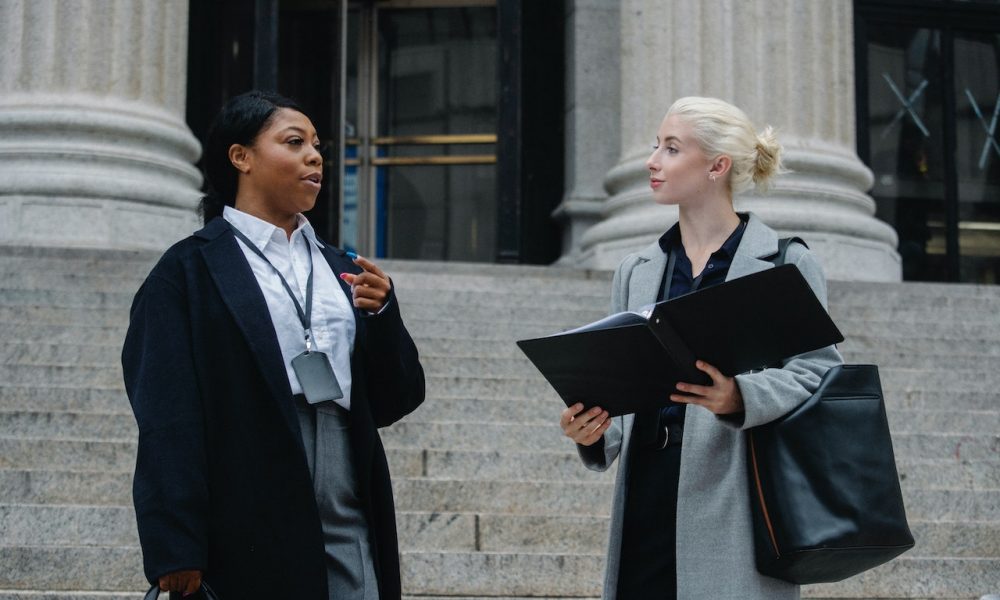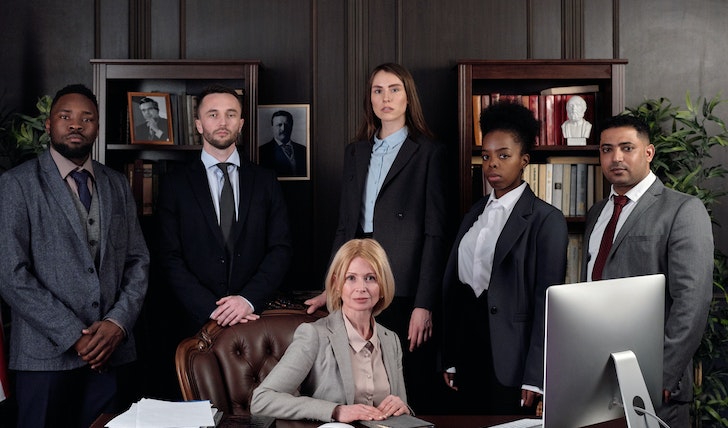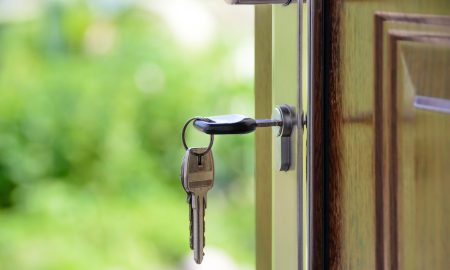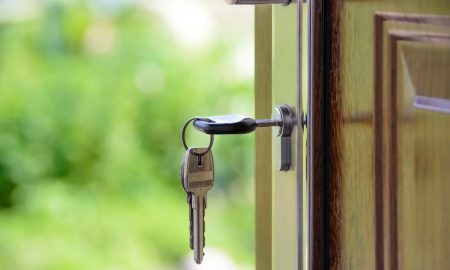
To Cope With The High Cost Of Hiring Lawyers, Some States Are Letting “Non-Lawyers” Offer Legal Advice

Hiring a lawyer or a personal attorney is expensive. Most American households lose cases by default because they can not make it to court. They can not hire a personal attorney or a professional lawyer to represent them in front of the jury. Thus, they lose cases by default. Therefore, some states believe there is “a crying need of the day” to allow non-lawyers to help commoners in legal matters.
The costs of hiring professional lawyers have been going up since the 1970s, says a report released by the Supreme Court of Arizona.
The report also claims that to settle family cases and other legal matters, Americans have two available options. Firstly, they will have to hire a lawyer or a personal attorney. Secondly, they will have to give up on the skirmish and lose the case by default. Of course, the latter is not a favorable option, but there is no way around it.

Pixabay / Pexels / For court proceedings, Americans either had to hire a lawyer or give up on the case – before the launch of this new program.
Thus, this latest initiative aims at offering justice to every single American. Families who can not afford to hire a professional lawyer or a personal attorney can now have access to “non-lawyers.” these non-lawyers will represent families and households in courts without any charges. Or, they will charge very less.
What States are Allowing Non-Lawyers to Offer Legal Services?
The initiative was first taken by the state of Arizona. The Supreme Court of Arizona announced in early 2019 that Americans are struggling with hiring lawyers. “They can not afford to hire personal attorneys and professional lawyers,” said the statement from the supreme court. Thus, they lose cases by default, the statement concluded.

Ekaterina / Pexels / Arizona was the first state to allow non-lawyers to offer legal guidance in family and civil cases – followed by Utah, Oregon, and Colorado.
Following Arizona, Utah was the next state to launch this initiative. The aim was the same: To offer justice for everyone and make courts accessible to everyone.
Utah, Oregon, Minnesota, and Colorado are other states that are considering launching this program in the coming months.
What Should be the Qualification of the Non-Lawyer?
Soon after the launch of the program, the central question was about the qualification of these non-lawyers. Of course, civil cases and family matters are sensitive in nature. And they require proper background knowledge.

August / Pexels / The ‘qualification’ of non-lawyers – who are allowed to give legal advice – varies from one state to another.
In Colorado, for instance, the non-lawyer must have “some background” in law and legal matters. In other words, if the candidate is not certified but possesses a law degree or knows family cases, he or she is eligible to offer legal help.
On the other hand, other states have a complex procedure for non-lawyer candidates. For instance, in Oregon, the candidate must submit an application and pass the initial test. Once passed, the candidate will be offered a legal technician’s certificate. In turn, this certificate will make the candidate eligible to give legal advice in family and civil cases.
More in Legal Advice
-
`
Santo Spirits: Sammy Hagar and Guy Fieri’s Joint Venture
In the world of business partnerships, some combinations might seem unconventional at first glance. But when you delve deeper into the...
November 16, 2023 -
`
Everything You Need to Know About Mortgage Rate Lock
You have probably embarked on the exciting yet nerve-wracking voyage of purchasing a home. Amidst the sea of paperwork, open houses,...
November 9, 2023 -
`
7 Effective Ways to Make Your Business More Sustainable
In an age of rising environmental consciousness, making your business more sustainable isn’t just a trend; it’s a necessity. Sustainable practices...
November 3, 2023 -
`
Housing Market Going Up? Then Why Not Rent?
“Buy a house! It is the best investment!” How many times have you heard that? Probably enough to make a drinking...
October 29, 2023 -
`
Surprising! Celebs Who You Didn’t Know Had a Master’s Degree
When it comes to celebrities, we often associate them with glitz, glamour, and blockbuster movies. But did you know that some...
October 17, 2023 -
`
Navigating the Housing Maze: The 7% Mortgage Rate Quandary
If there is one thing that this year has thrown our way (apart from those fascinating tech gadgets we did not know...
October 12, 2023 -
`
Where to Buy a House in the U.S With a $100K Salary
Got a cool $100,000 annual paycheck in your pocket? Cheers to that accomplishment! With such a financial cushion, dreams of homeownership...
October 6, 2023 -
`
The “Grave” Housing Crisis Forcing U.S. Homeowners to Sell Their Houses
Every culture has its dreams and aspirations. For those living in the United States, it has traditionally been an idyllic house, spacious and...
October 1, 2023 -
`
Why Private Equity is Betting Big on Hollywood
Hollywood has long been a glamorous yet unpredictable industry. But what is new in Tinseltown? Private equity investments. Yes, that is right!...
September 19, 2023















You must be logged in to post a comment Login